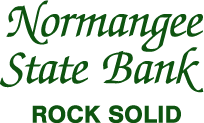Identity Theft
What is identity theft?
Identity theft occurs when someone acquires your personal information and uses it without your knowledge to commit fraud or theft. It is a serious crime and cases are growing. An all too common example is when an identity thief uses your personal information to open a credit card account in your name.
No matter how cautious you are, there is no way to completely prevent identity theft from occurring. But there are ways you can help minimize your risk. This page contains valuable information on how you can protect yourself by managing your personal information wisely, the warning signs of identity theft, and what to do if you do become a victim.
Helpful Tips
Don’t give out personal information on the phone, through the mail or over the Internet unless you’ve initiated the contact or are sure you know whom you’re dealing with.
Don’t carry your Social Security card with you; leave it in a secure place. Carry only the identification and credit and debit cards that you need.
- Do not put your address, phone number, or driver’s license number on credit card sales receipts.
- Social Security numbers or phone numbers should not be put on your checks.
- Shred your charge receipts, copies of credit applications, insurance forms, physician statements, checks and bank statements, expired charge cards that you’re discarding, and credit offers you get in the mail.
- Secure your credit card, bank, and phone accounts with passwords. Avoid using easily available information like birth date, the last four digits of your SSN, or your phone number. When opening new accounts, you may find that many businesses still have a line on their applications for your mother’s maiden name. Use a password instead.
- Secure personal information in your home, particularly if you have roommates or hire outside help.
- Promptly remove mail from your mailbox. If you are planning to be away from home and cannot pick up your mail, call the U.S. Postal Service at 1-800-275-8777 to request a vacation hold.
- Ask about information security procedures in your workplace. Find out who has access to your personal information and verify that records are kept in a secure location. Ask about the disposal procedures for those records as well.
- Before revealing any personally identifying information (for example, on an application), find out how it will be used and secured, and whether it will be shared with others. Ask if you have a choice about the use of your information. Can you choose to have it kept confidential?
Check your credit report
Order a copy of your credit report from each of the three major credit-reporting agencies every year. Make sure it is accurate and includes only those activities you have authorized. The law allows credit bureaus to charge you up to $9.00 for a copy of your credit report.
By checking your report on a regular basis you can catch mistakes and fraud before they wreak havoc on your personal finances. Don’t underestimate the importance of this step.
Credit Bureaus
Equifax – www.equifax.com
To order your report, call: 1-800-685-1111
To report fraud, call: 1-800-525-6285
Experian – www.experian.com
To order your credit report or report fraud, call: 1-888-EXPERIAN (397-3742)
TransUnion – www.transunion.com
To order your report, call: 800-916-8800
To report fraud, call: 1-800-680-7289
Phishing
Protect Yourself Against Phishing
Phishing usually comes in the form of fraudulent emails that appear to come from legitimate sources. These ask customers to verify personal information or link to counterfeit Web sites that appear real.
Watch for emails that:
- Urge you to act quickly because your account may be suspended or closed, or to update your personal information.
- Don’t address you by name, but use a more generic one like “Dear valued customer.”
- Ask for account numbers, passwords, Access IDs, or other personal information.
The Bank will NEVER ask for sensitive information, such as account numbers, Access IDs or passwords, via e-mail.
Tips for safeguarding your information from the American Bankers Association:
- Don’t give your Social Security number or other personal credit information about yourself to anyone who calls you.
- Tear up receipts, bank statements and unused credit card offers before throwing them away.
- Keep an eye out for any missing mail.
- Don’t mail bills from your own mailbox with the flag up.
- Review your monthly accounts regularly for any unauthorized charges.
- Order copies of your credit report once a year to ensure accuracy.
- Do business with companies you know are reputable, particularly online.
- Don’t open email from unknown sources and use virus detection software.
- Protect your PINs (don’t carry them in your wallet!) and passwords; use a combination of letters and numbers for your passwords and change them periodically.
- Report any suspected fraud to your bank and the fraud units of the three credit reporting agencies immediately.
- TransUnion: (800) 916-8800
- Experian: (800) 301-7195
- Equifax: (800) 525-6285
If you become a victim, contact:
- The fraud departments of the three major credit bureaus
- The creditors of any accounts that have been misused
- The local police to file a report.
- The bank to cancel existing accounts held in your name and re-open new accounts with new passwords.
The Bank is committed to safeguarding our customers’ financial information. Maintaining our customers’ trust and confidence is a top priority. To learn more about how we protect your information, please ask for a copy of our privacy policy or click on the link in our website.
For additional information regarding Identity Theft, visit the links identified below:
https://www.consumer.ftc.gov/topics/identity-theft
https://www.usa.gov/identity-theft

